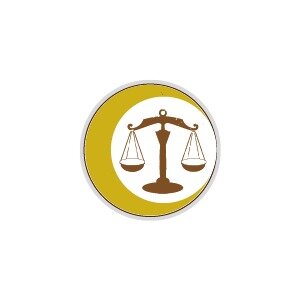Best Acquisition / Leveraged Finance Lawyers in Kumasi
Share your needs with us, get contacted by law firms.
Free. Takes 2 min.
List of the best lawyers in Kumasi, Ghana
About Acquisition / Leveraged Finance Law in Kumasi, Ghana
Acquisition and leveraged finance are specialized areas of finance law that involve securing funding for the purchase of companies or substantial business assets, often using the assets of the acquiring company or the target company as collateral. In Kumasi, Ghana, these financial transactions are becoming increasingly prominent as investors and corporations seek opportunities within the city’s rapidly growing economy. Because acquisition and leveraged finance involve complex loan structures, cross-border transactions, and a range of regulatory considerations, it is important for participants to understand the legal landscape specific to this region.
Why You May Need a Lawyer
There are several scenarios in which you might need legal assistance related to acquisition or leveraged finance in Kumasi. If you are purchasing a business, considering a corporate merger or acquisition, seeking funding for an expansion, or contemplating a management buy-out, the legal documentation and negotiations can be highly intricate. A local lawyer can provide valuable guidance on the structure of the deal, ensure compliance with Ghanaian laws and regulations, conduct necessary due diligence, and protect your interests during negotiations. Additionally, lawyers can help resolve any disputes that arise during or after the transaction, ensuring that risks are minimized and your investment is secure.
Local Laws Overview
Participants in acquisition or leveraged finance transactions in Kumasi must comply with several key Ghanaian laws and regulations. The Companies Act, 2019 (Act 992) governs the incorporation, structure, and management of companies in Ghana and sets out requirements for mergers and acquisitions. The Securities Industry Act, 2016 (Act 929) regulates capital market activities where publicly listed companies are involved. The Borrowers and Lenders Act, 2008 (Act 773) sets standards for lending relationships, including registration and the enforcement of security interests. Additionally, the Foreign Exchange Act, 2006 (Act 723) impacts transactions involving foreign currency or international investors. All these laws are enforced by local regulatory bodies such as the Registrar General’s Department and the Bank of Ghana, and non-compliance can lead to significant legal and financial consequences.
Frequently Asked Questions
What is leveraged finance?
Leveraged finance refers to the use of borrowed money to fund the acquisition of a company, where the acquired business’s assets or cash flows often serve as collateral for the loan.
What is the difference between acquisition finance and leveraged finance?
Acquisition finance is any funding obtained to purchase a business or its assets. Leveraged finance is a form of acquisition finance that uses borrowed funds, typically secured by the assets of the business being acquired.
Which laws regulate acquisition and leveraged finance in Kumasi, Ghana?
Relevant laws include the Companies Act, the Securities Industry Act, the Borrowers and Lenders Act, and the Foreign Exchange Act. These laws regulate company operations, securities, borrowing and lending relationships, and foreign currency transactions.
What role do local banks play in leveraged finance deals?
Local banks in Kumasi provide funding, evaluate collateral, carry out risk assessments, and facilitate transaction documentation for acquisition and leveraged finance arrangements.
Are there any restrictions on foreign investors in acquisition finance transactions?
Foreign investment is generally permitted, but investors must comply with Ghana Investment Promotion Centre Act requirements, and certain sectors may have restrictions or require special licensing.
How important is due diligence in acquisition finance?
Due diligence is crucial. It helps identify financial risks, outstanding liabilities, regulatory compliance issues, and the true value of the target company, safeguarding the interests of both buyers and lenders.
What types of security can be used for leveraged loans in Kumasi?
Security for leveraged loans can include company shares, fixed assets, property, receivables, and sometimes intellectual property, depending on the agreement and applicable law.
How long does it take to complete an acquisition finance transaction?
The process duration varies, but a typical acquisition finance transaction can take several weeks to several months, depending on the deal's complexity, regulatory approvals, and the due diligence involved.
What risks should parties be aware of in leveraged finance?
Risks include over-leverage, interest rate fluctuations, regulatory changes, non-compliance, and the possibility of loan default or challenges in enforcing security.
Can acquisition or leveraged finance transactions be done cross-border?
Yes. Cross-border transactions are possible, but they require careful consideration of local and international laws, foreign exchange regulations, and tax implications. Expert legal guidance is essential in such cases.
Additional Resources
- Registrar General’s Department: Responsible for company registrations and corporate records in Ghana.
- Bank of Ghana: Regulates banking activities, sets borrowing and lending standards, and oversees transaction approval processes.
- Ghana Investment Promotion Centre (GIPC): Offers information and guidance for foreign investors entering the Ghanaian market.
- Ghana Bar Association: Can assist in finding qualified legal practitioners specialized in finance or business law.
- Ministry of Trade and Industry: Oversees investment policies and offers relevant business guidelines.
Next Steps
If you are considering or involved in an acquisition or leveraged finance transaction in Kumasi, Ghana, it is crucial to seek professional legal advice early in the process. Identify and consult with a lawyer experienced in local business and finance law. Gather all relevant documentation relating to your targets and funding plans, and prepare to discuss your goals and any existing concerns. An expert lawyer will guide you through compliance checks, due diligence, negotiation of transaction terms, and regulatory filings. Acting promptly and securing knowledgeable legal counsel will help you avoid common pitfalls and facilitate a successful transaction.
Lawzana helps you find the best lawyers and law firms in Kumasi through a curated and pre-screened list of qualified legal professionals. Our platform offers rankings and detailed profiles of attorneys and law firms, allowing you to compare based on practice areas, including Acquisition / Leveraged Finance, experience, and client feedback.
Each profile includes a description of the firm's areas of practice, client reviews, team members and partners, year of establishment, spoken languages, office locations, contact information, social media presence, and any published articles or resources. Most firms on our platform speak English and are experienced in both local and international legal matters.
Get a quote from top-rated law firms in Kumasi, Ghana — quickly, securely, and without unnecessary hassle.
Disclaimer:
The information provided on this page is for general informational purposes only and does not constitute legal advice. While we strive to ensure the accuracy and relevance of the content, legal information may change over time, and interpretations of the law can vary. You should always consult with a qualified legal professional for advice specific to your situation.
We disclaim all liability for actions taken or not taken based on the content of this page. If you believe any information is incorrect or outdated, please contact us, and we will review and update it where appropriate.










